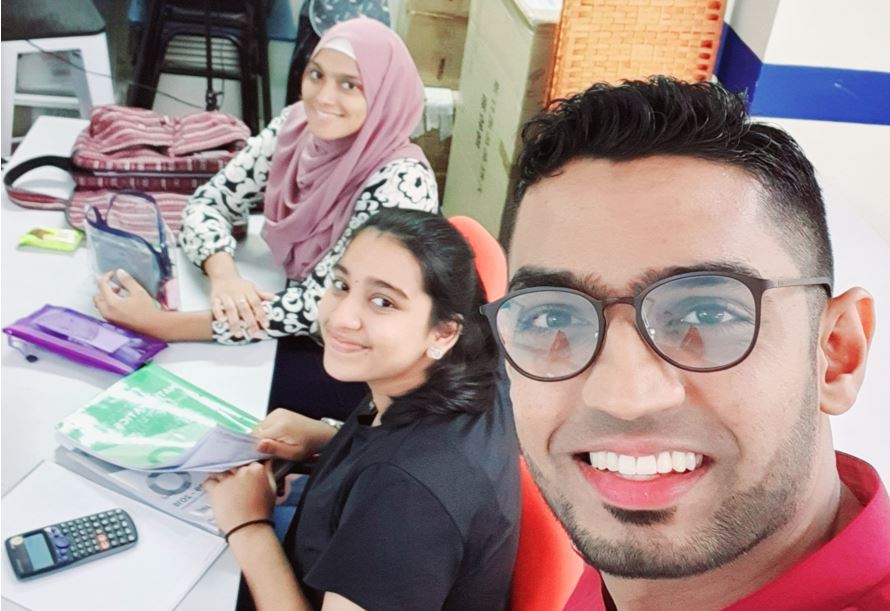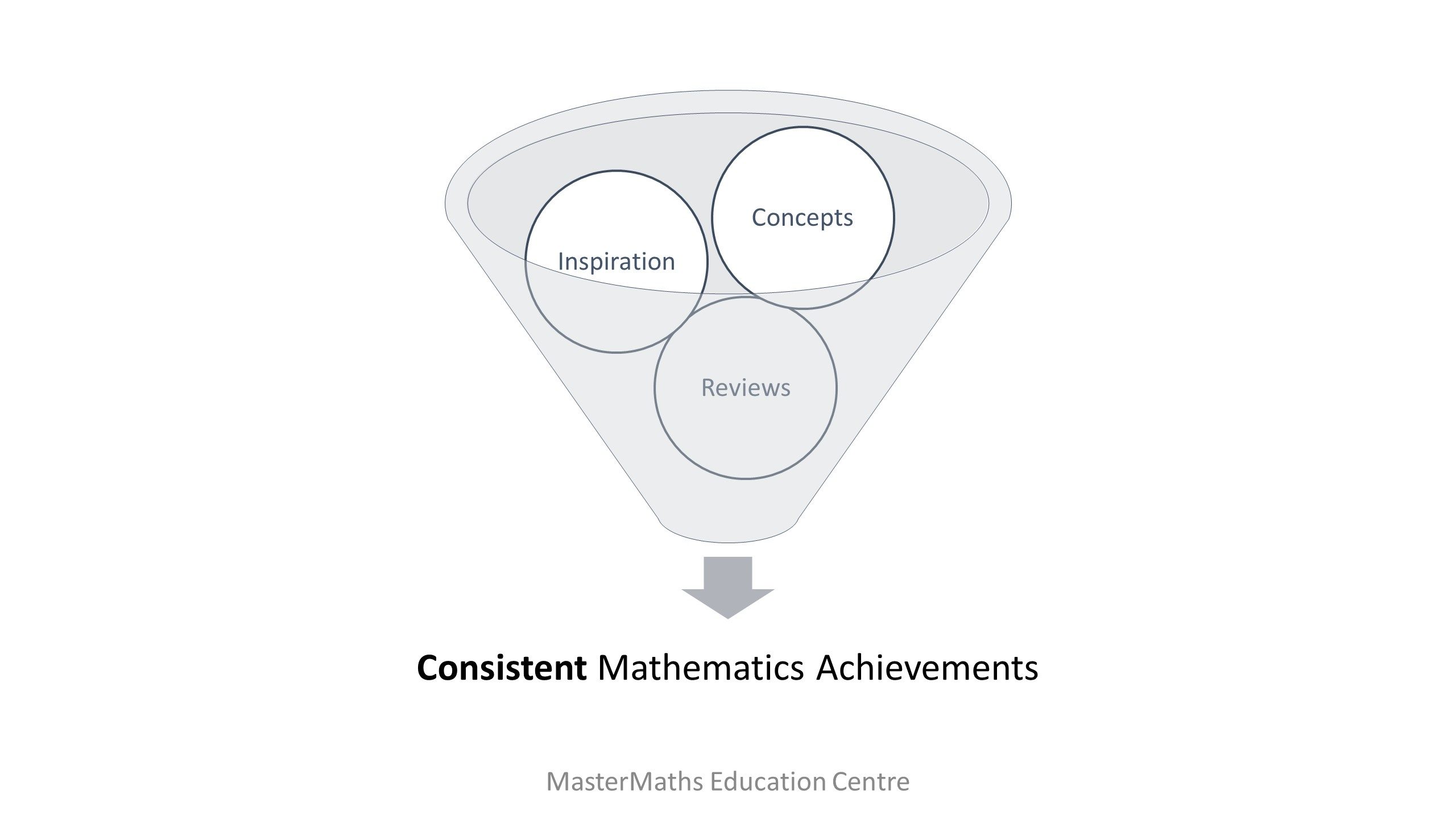Adopting this 3-prong approach proves useful for achieving regular Mathematics success…

Having a proven learning system ranks as one of the top must-haves when it comes to regular and consistent Mathematics success. Mastery of concepts, finding purpose with inspiration and conducting follow up reviews. These three items, if done well and cohesively together, can make all the difference in your child’s Mathematics progress.

Concepts
Learning the fundamentals for your child’s level is a springboard to advanced techniques.
For example, a child in Primary 5 learns about the techniques of Ratio i.e. Ratios are whole numbers and must be expressed in it’s simplest form. This is learning the basics. More than that, your child should also be exposed to heuristics that employs ratio. For example – Difference unchanged age related problem sums uses ratio too.
A secondary student will learn many different formulas. The topic of Trigonometry includes at least 6 different formulas. Knowing these formulas is a good start but taking them to the next step for their application is vital.
As such, when it comes to imparting Maths concepts to students, employ 2-steps 1) learn the basics & 2) learn their applications.
Inspiration
Having a good sense of drive for Mathematics is important to sustain your child’s energy levels. Most key is to ask this question – Why am I doing what I’m doing? Is it because of wanting to achieve a great grade and outperform my peers? Or is it because I want to challenge myself for self-improvements in my analytical skills, logical reasoning and problem solving abilities? Positive reinforcements of the purpose to Mathematics education will fuel the energy in your child.
Review
Analysis sessions will help gel the other two previous steps. Reviews can be in the form of completion of study plans, achieving mastery in a certain topic or heuristic or formula application, conducting mock timed tests. Reviews will help in identifying gaps in your child’s work habits and also is chance for building resilience in your child .

In all seriousness, Mathematics should be a subject that is fun too. Insert real-life examples when going through Mathematics with your child. In fact, the national examinations, PSLE, “N” & “O” Levels are all moving in the direction of including more applications in real life problems. Try adopting this 3-prong approach and include some joy in learning Maths too !
© 2025 Master Maths Education Centre Pte. Ltd. All Rights Reserved. | Empowering Minds, One Equation at a Time.